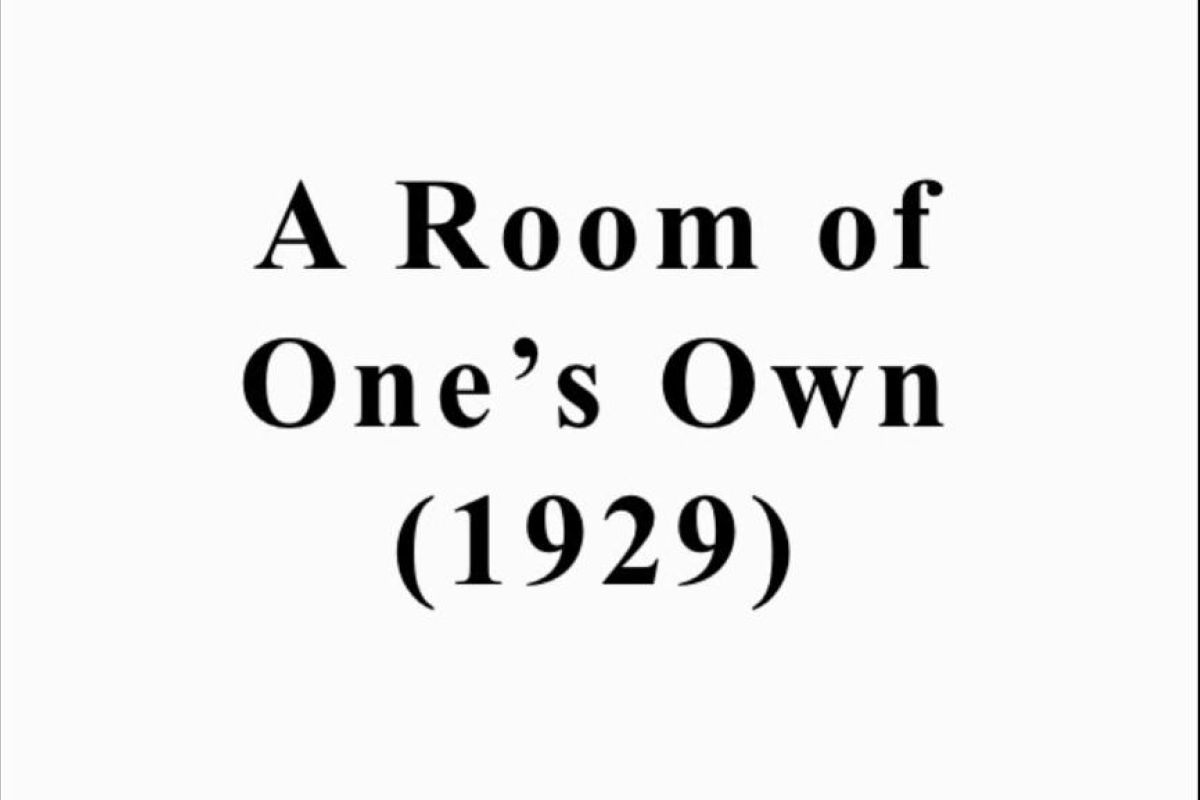Any woman born with a great gift in the sixteenth century would certainly have gone crazed, shot herself or ended her days in some lonely cottage outside the village, half-witch, and half-wizard, feared and mocked atJakarta (ANTARA) - "Any woman born with a great gift in the sixteenth century would certainly have gone crazed, shot herself or ended her days in some lonely cottage outside the village, half-witch, and half-wizard, feared and mocked at. For it needs little skill in psychology to be sure that a highly gifted girl who had tried to use her gift for poetry would have been so thwarted and hindered by other people, so tortured and pulled asunder by her own contrary instincts, that she must have lost her health and sanity to a certainty."
An English novelist-cum-essayist Adeline Virginia Woolf (January 25, 1882 - March 28, 1941) told readers in her most celebrated essay “A Room of One’s Own” on the struggle of being an authoress in the 16th Century, where most gifted women in literature would rather suppress their genius works because society had a hard time accepting women who deliberately spoke and wrote their minds.
However, the struggle lasted until 19th Century where many authoresses would prefer to use men’s pen names for their publications, some of which including Mary Ann Evans (November 22, 1819 - December 22, 1880) disguised as George Eliot; Mary Shelley as Percy Bysshe Shelley; Charlotte Brontë (1816-1855), Emily Brontë (1818-1848), and Anne Brontë (1820-1849), or the Brontës sisters, wrote under the pen name of Currer, Ellis, and Acton Bell. Last but not least, Louisa May Alcott, an American authoress who became famous for her novel “Little Women” also wrote under the name of A.M Barnard.
Why did these classic authoresses prefer to hide behind men’s pseudonyms? A generation of today’s authors would take pride in publishing their works under their names, but before the Early 20th Century, women’s literary works would be taken for granted by most editors and publishers simply because of a misogynist view that men could produce better fiction than women.
In Alcott’s “Little Women”, the lead character Jo would not admit her short stories was hers, instead, she would present it as writings done by her male friends. By using a pseudonym or being completely anonymous, an aspiring writer, Jo, could publish numbers of short stories in newspapers. Despite getting underpaid by publishers, Jo manages to pursue her dream as a novelist while refusing to be dictated by society’s patriarch norm on how women should live their lives.
Although the Alcott’s work finished with a happy ending, a sense of discomfort continued to disturb Woolf’s mind.
In her essay, she wrote, “Yet, genius of a sort must have existed among women as it must have existed among the working classes. Now and again an Emily Brontë or a Robert Burns blazes out and proves its presences. But certainly it never got itself on paper. When, however, one reads of a witch being ducked, of a woman possessed by devils, of a wise woman selling herbs, or even of a very remarkable man who had a mother, then I think we are on the track of a lost novelist, a suppressed poet, of some mute and inglorious Jane Austen, some Emily Brontë who dashed her brains out on the moor or mopped and mowed about the highway crazed with the torture that her gift had put her to. Indeed, I would venture to guess that Anon, who wrote so many poems without signing them, was often a woman.”
Woolf in her essay defended women’s ability as equal to men. Gender is not a proper criterion to value one’s work. The Brontë sisters, for example, have published highly praised novels, including “Jane Eyre”, “Wuthering Heights”, and “Agnes Gray”, while a notable poet and novelist Mary Ann Evans/George Eliot would always be cherished for her classics “Middlemarch” and “Silas Marner”.
She wrote: “[…] we must accept the fact that all those good novels, Villete, Emma, Wuthering Heights, Middlemarch, were written by women without more experience of life than could enter the house of a respectable clergyman; written too in the common sitting-room of that respectable house and by women so poor that they could not afford to, but more than a few quires of paper at a time upon which to write Wuthering Heights or Jane Eyre.”
The only deficiency possessed by women lies in access – an opportunity to be treated equally as other sexes/genders.
Therefore, for Woolf, an authoress must have money and a room of her own if she wishes to write fiction.
Why? She told readers in her essay “A Room of One’s Own”: “Intellectual freedom depends upon material things. […] Women have had less intellectual freedom than the sons of Athenian slaves. Women, then, have not had a dog’s chance of writing poetry. That is why I have laid so much stress on money and a room of one’s own.”
Centuries have passed, but does the struggle remain? It might be the only question we must carefully answer.
Related news: Deciphering Indonesia in its myriad shades through its female writers
Related news: Impact of female fictional characters as role models
Related news: Capturing the gender inequality through Asian writers' eyes
Editor: Gusti Nur Cahya Aryani
Copyright © ANTARA 2020












